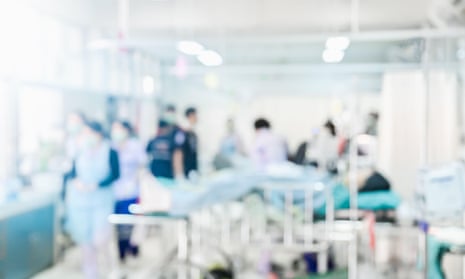A survey has found that one in four doctors in the NHS are so tired that their ability to treat patients has become impaired. Here doctors reveal how tiredness, fatigue and sleep deprivation are affecting their ability to provide the best care for patients in the NHS.
The GP trainee
As a GP trainee working in A&E last year I made an error at the end of a long shift. Due to staff sickness I was nine hours into what should have been an eight-hour shift during which time I had not taken a toilet break, eaten or drank.
When I asked about a break I was told that no one else was taking breaks, but it was ‘up to me’ if I really needed to. I felt I couldn’t.
I saw a patient and took their medical history, which included them telling me they were allergic to penicillin. I documented this within the notes but did not add it to the allergy box or the drug chart as I was interrupted by a nursing colleague who asked me to assist with another patient. When I was able to return to the patient, I explained they would need to be admitted and we would start intravenous antibiotics.
I prescribed IV amoxicillin and shortly after it was given, I was called to the patient as they had collapsed. I realised as soon as I saw the patient the error I had made. Thankfully they recovered with treatment.
I later explained what had happened and apologised to them. The patient was understanding of my error but I still haven’t forgiven myself. I am always so careful but it was the perfect storm of chronic fatigue, thirst, hunger, bladder discomfort, distraction and an unmanageable workload that contributed to my mistake on that day.
The consultant
My sleep deprivation was affecting my daily work and I didn’t realise it until a near miss happened. I’m now off the on-call rota on health grounds.
There’s simply not enough proactive management around the effects of sleep deprivation on cognitive errors in healthcare – a situation made worse by the pandemic and short staffing. Breaks should be longer and more frequent than daytime working. The truth is sleep deprivation is a systems failure and should be addressed by health and safety laws.
The GP
There is no capacity in the system to do anything about feeling tired or burnt out and managers have no solutions and therefore do not want to hear. I have been made to feel guilty for taking annual leave with my family.
The consultant radiologist
I work as a consultant radiologist in a district general hospital. I have suffered a severe case of burnout and was off work for over a year and consequently no longer do on-calls.
It is now so busy that it is normal to have to report 50-plus emergency scans in 12 hours, with constant interruptions. This is mentally very exacting. The scans contain hundreds of images which have to be manipulated by powerful computers in order to aid interpretation. At the end of 12 hours staring at a computer continuously, your mind is tired and you don’t look at the scan with quite the same acumen as you did at the start of the day. We try to compensate for this by taking longer to do a report and reviewing tricky scans the next day but it is hard and there are many distractions and interruptions that break concentration.
What can be done to combat this? Personal experience has taught me the value of building in several natural breaks to my day. Self-care is vital. We take it in turns to buy coffee for colleagues to allow a bit of social interaction.
